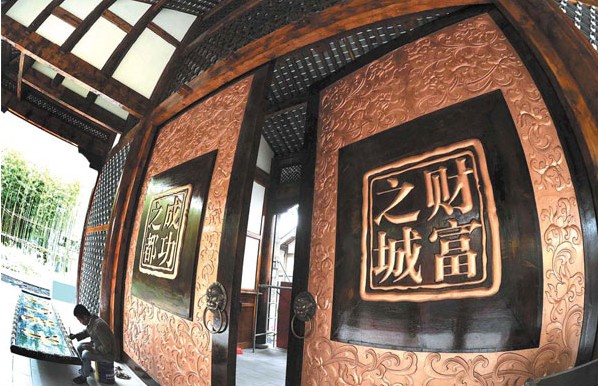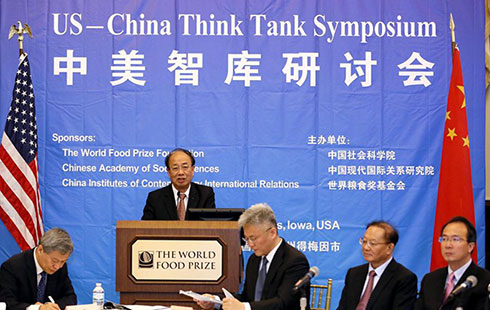

 |
| The inscription on the wall reads: 'Chengdu, City of Success and Fortune'. Provided to China Daily |
Chengdu is strategically important to Bayer, said Johannes Dietsch, president of the Bayer Greater China Group.
He said the company is committed to growing its presence in western China and there is no better place to start than the Sichuan capital.
The company also expects strong future growth in the Chinese market.
Dietsch made these remarks in an interview with China Daily just before this year's Fortune Global Forum, which started on Thursday in Chengdu and will run until Saturday.
He outlined the role that the city plays in the company's China strategy.
"It is home to our Bayer HealthCare western region employees as well as the headquarters and production site of our Chinese Animal Health business," he said.
Founded in 1996, Bayer (Sichuan) Animal Health Co Ltd is one of the leading providers of medical supplies for animals, including a wide range of products for disease prevention and treatment in various species.
The product portfolio consists of livestock products, companion animal products and aquaculture solutions.
In addition to Bayer, Chengdu has attracted healthcare giants from other countries.
General Electric opened its first innovation center in the world last year in Chengdu that focuses on the healthcare market, and the US conglomerate aims to make it a center for local healthcare
The company sees huge market potential in rural China. However, it will be a big challenge for international giants to cater to the diverse needs of smaller hospitals, especially as Chinese medical equipment suppliers improve their competitive strength.
GE's innovation center in Chengdu reflects its major push in that direction.
A boom is on the horizon in the market for medical products in the southwestern Chinese province.
Sichuan is home to 91 Grade A hospitals, including Chengdu-based West China Hospital, the largest in the country in terms of beds, and 392 are classified as Grade B. Each year, hospitals above the county level purchase about 25 billion yuan ($4.1 billion) worth of pharmaceuticals.
International firms see Chengdu as a gateway to western China.
Dietsch said that Bayer's commitment to the region is also reflected in Bayer's strategic partnership with the Ministry of Health to provide advanced medical training to physicians in poor counties under the Go West campaign. In the first term, from 2007 to 2012, over 11,000 medical professionals received the training. Due to its great value, the agreement was extended to 2017 and it is expected to have trained another 11,000 physicians by then.
"The Go West project echoes the call for public hospital reform and a trend toward cultivation of talent in public healthcare. The project has become a strong supplement to the capacity building for rural medical workers and a model for building a complete long-term training system for physicians working in grassroots healthcare services," he added.
Bayer this year celebrates its 150th anniversary. Its products have time and again helped to improve people's quality of life throughout the company's long history, he said.
"We have successfully developed our business activities in China, and we are committed to further investing in this market. We anticipate our business in this market will continue experiencing strong growth in the following years. We are confident about China's development and are honored to be part of it," Dietsch said.
"At Bayer, we believe in 'Science for a Better Life'. With our innovative solutions, we are in the position to address some of China's core challenges, such as universal healthcare coverage, safe and healthy food for all, solutions for an efficient infrastructure and how to tackle climate change," he added.
Dietsch said Bayer had successfully developed its business in China in the past more than 130 years.
"I am confident that China will continue its growth path, and I expect that sustainable elements will play a much greater role in rebalancing and transforming the industrial landscape," he said.
zhuanti@chinadaily.com.cn














